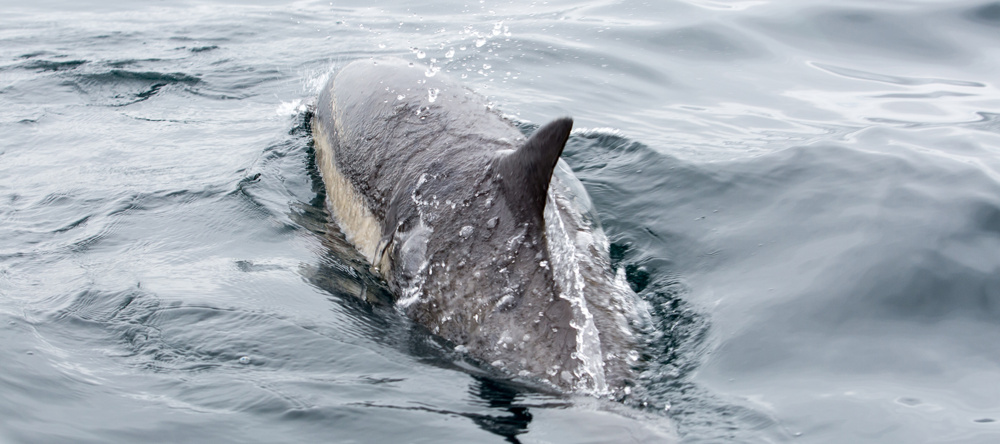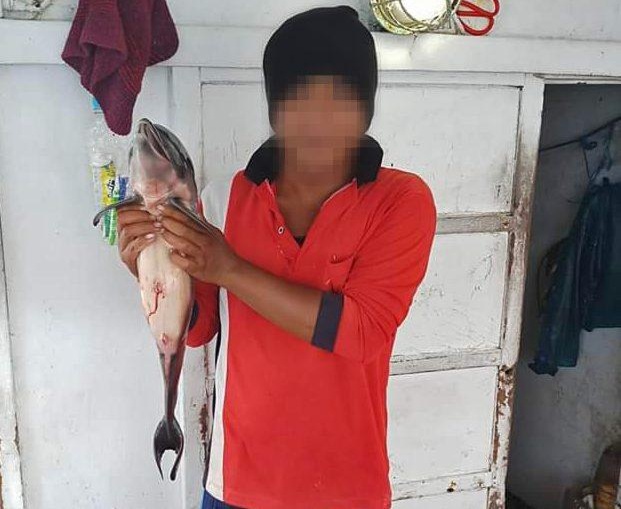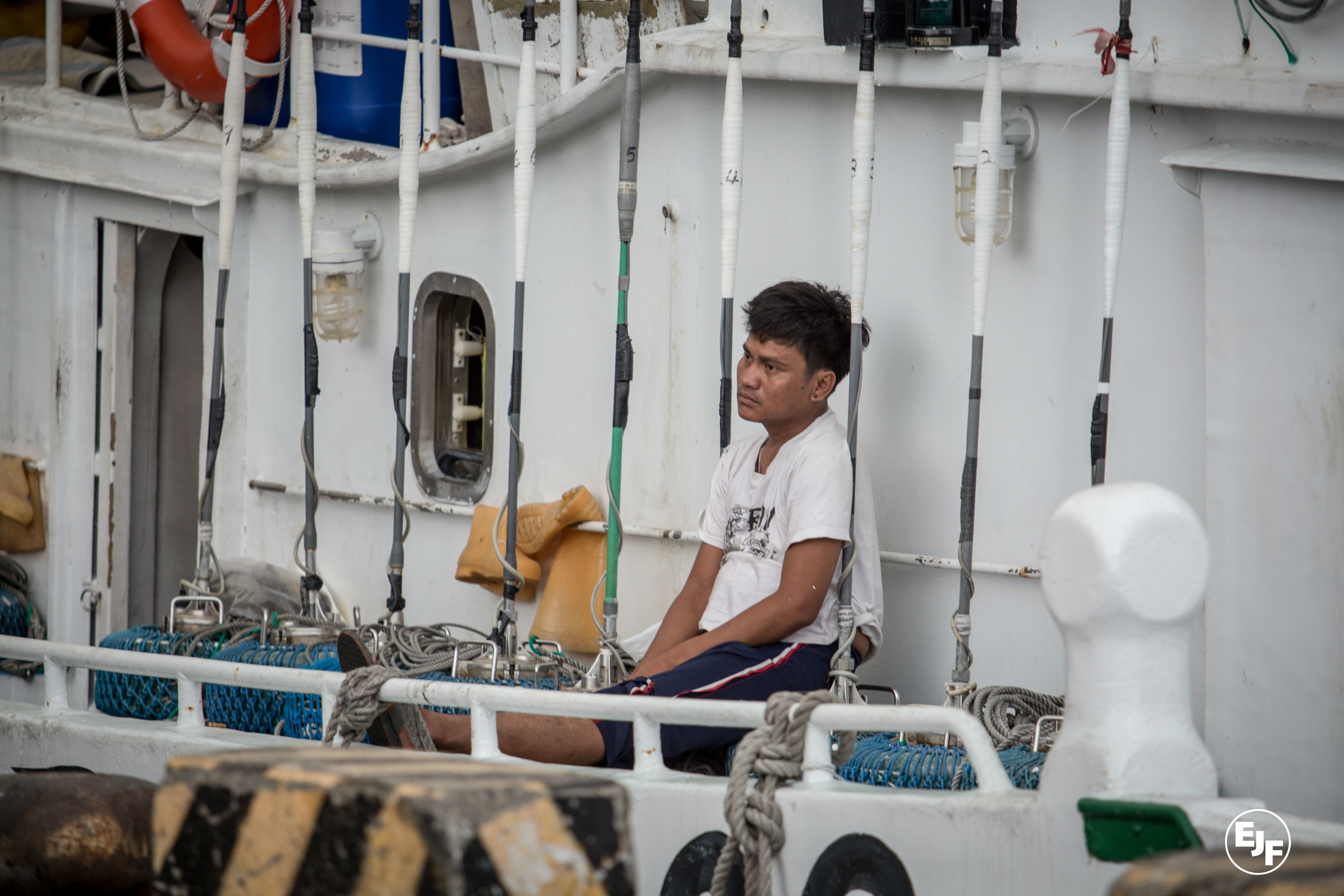
Taiwan fishing vessels target dolphins as bait for sharks
Dolphins are being deliberately targeted by Taiwanese fishing vessels to use as bait to catch sharks, an EJF investigation has found. On just one vessel, a crew member reported that 70 dolphins were intentionally killed on a four-month trip in 2019. Data gathered shows that official statistics – which state that only seven cetaceans were caught during the whole year across all 900 longline vessels – were gross underestimates. EJF also revealed that this practice often goes hand-in-hand with illegal shark finning and mistreatment of crew, including reports of insufficient food, shifts of 20 hours or more and withheld wages.
In a shockingly cruel and wasteful practice, dolphins were harpooned riding the bow wave, crew from four distant water vessels reported to EJF. Once speared, the animals were dragged alongside until they were exhausted or dead; those still showing signs of life were electrocuted using a car battery. The dolphins were then butchered and used as shark bait.

One of the photos collected as evidence, an unborn baby dolphin – judging by the size – is being held by a crew member.
The use of dolphin meat as bait by distant water fishing fleets is a potentially serious and hidden conservation threat, since the dolphin meat itself is never landed or traded. In the most recent case documented by EJF, the crew showed photos of what appears to be an entire pod of short-beaked common dolphins. The meat is particularly desirable as bait, the men told EJF, because it produces a lot of blood and stays on the hooks.
Over the past three years, EJF has submitted evidence on 20 vessels allegedly catching cetaceans and other marine mammals to the Taiwanese Fisheries Agency, the latest report takes the count to 27. So far, no sanctions have been brought against any vessel owners. These practices risk undermining the progress Taiwan made after its ‘yellow card’ warning from the European Union for illegal fishing. They could also have implications for export of seafood to the USA, since the US Marine Mammal Protection Act has strict standards to reduce marine mammal by-catch.
To crack down on these practices, Taiwan must rapidly introduce electronic monitoring at sea, EJF recommends. Without cameras on board, it is very difficult for authorities to find evidence or impose sanctions for false reporting after the vessels have returned to port.
Better electronic monitoring would also help prevent illegal shark finning, where the valuable fins are removed, and the bodies dumped at sea. In the briefing, crew reported catching and finning large numbers of sharks, including the endangered shark species.
Many of the men interviewed also reported severe mistreatment of crew, with punishing shifts of over 20 hours, a lack of food and water, and withheld wages. On one vessel the captain’s son was especially abusive, physically and verbally abusing crew.
With a fleet of over 1,000 vessels operating across three oceans and landing catch in 32 ports across the world, Taiwan’s vessels undeniably have a significant impact on global ocean ecosystems. Hunting dolphins in this way is not only cruel and wasteful, it removes key species that are central to the health of marine ecosystems. Human rights abuse goes hand-in-hand with this illegal fishing, and Taiwan authorities must act urgently to enhance transparency and enforcement and put an end to both. Effective electronic monitoring, with cameras on vessels, especially those that are high risk of offending, is a crucial step.
SIGN UP FOR OUR EMAILS AND STAY UP TO DATE WITH EJF

